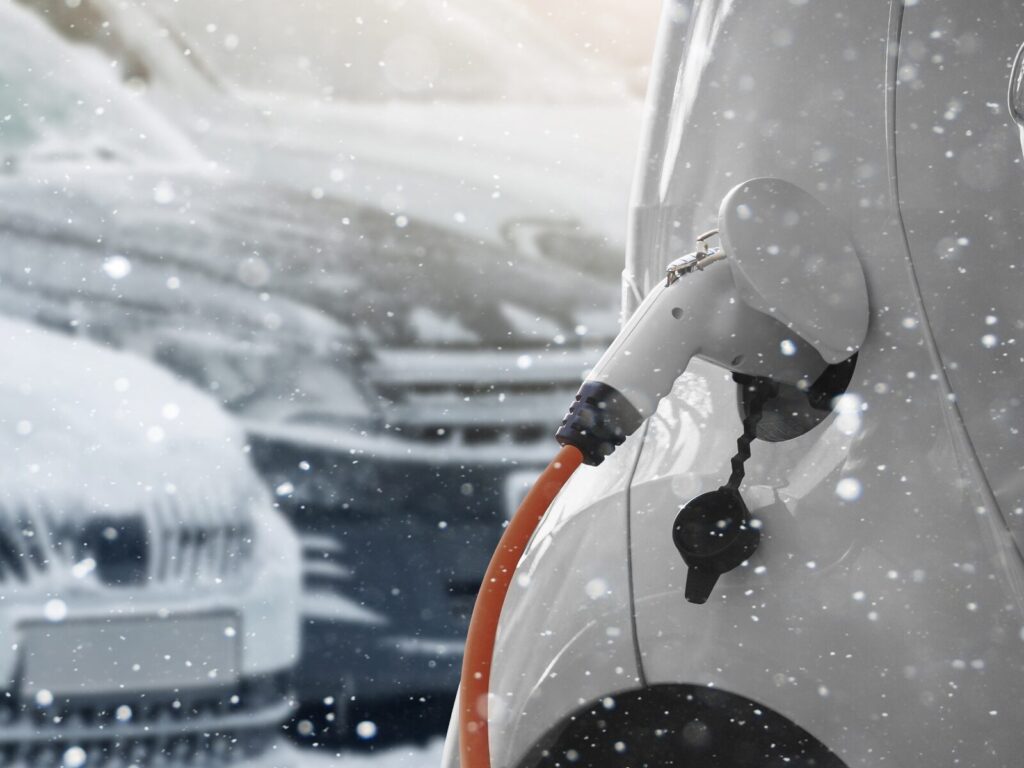ATS delivers high and low-temperature testing for EV battery systems to help manufacturers design batteries that can power vehicles year-round. Before releasing a battery, manufacturers may need proof that their product can power electric vehicles through cold and hot temperatures in different environments and seasons. EV batteries must be resilient enough to withstand extreme internal and external temperatures that impact battery effectiveness.
Temperatures and EV Battery Risks
Performance
EV battery performance often depends on temperature, with moderate to warm temperatures improving performance and storage capacity for lithium-ion batteries. Exposure to extreme temperatures can lead to battery damage, danger, and a decrease in quality:
- Reduced driving range
- Reduced charging capacity
- Reduced power
- Reduced lifespan
Safety
Auto manufacturers must ensure user safety during standard operation and in case of an accident or malfunction to comply with national and international regulations. Modern EV batteries often include protective measures to reduce the risk of thermal runaway, a rapid and uncontrollable increase in pressure and temperature that may cause a fire or explosion.
Environmental Testing on EV Batteries
Thermal tests from a qualified party help manufacturers ensure the safety and reliability of their product before distribution. The ISO/IEC 17025:2017-accredited ATS environmental testing lab can certify EV battery compliance with industry standards and regulations. Lab testing allows manufacturers to discover the properties and limits of batteries without risking the safety of end users.
Our environmental testing lab houses a variety of climatic chambers capable of raising and lowering internal temperatures with precise control. With 14 different chambers of various sizes, we can accommodate a range of battery designs and dimensions.
High-Temperature Test
High-temperature tests anticipate the battery’s reaction to real-world scenarios, including:
- Direct sunlight
- Heat
- Humidity
The EV battery’s materials dictate how it reacts to extreme temperatures. Our environmental testing chambers can incrementally raise temperatures to 170 ˚C (338 ˚F) and take measurements throughout the test, monitoring:
- Battery voltage
- Battery capacity
- Battery performance
Low-Temperature Test
ATS’s environmental testing lab can also test EV batteries under low temperatures. While EV batteries tend to perform best in a moderate temperature range, lithium-ion batteries have decreased capacity and longer charging times in cold weather.
Low-temperature testing involves gradually decreasing the chamber temperature and recording the battery’s reactions. Our environmental chambers can reach temperatures as low as -60 ˚C ( -76 ˚F) to simulate extreme conditions. A low-temperature test provides manufacturers with significant performance data, including:
- Battery voltage and capacity
- Battery efficiency when starting the vehicle
- Factors leading to decreased battery performance
Standards
ATS is ISO/IEC 17025:2017-accredited to perform a variety of ISO/IEC 17025 testing and calibration services. We perform these tests in compliance with standards and guidelines set by industry bodies, such as ISO, IEC, MIL-STD, and RTCA DO. We frequently test to standards such as:
- SAE J2464
- IEC 62660
- UN ECE R100
About ATS
ATS is a consulting engineering, calibration, inspection, and testing firm based in Georgia. With locations nationwide, ATS and our growing Family of Companies reach clients faster and more conveniently than ever. We strive to deliver high-quality customer service and comprehensive testing and analysis services that our clients can rely on to make informed business decisions. Our efforts support the automotive, power generation, and manufacturing industries, as well as several others.
The FoC complies with the standards set by ATS’ ISO 9001:2015-registered Quality Management System and have accreditations from industry leaders such as A2LA and NADCAP. Click here to learn more about our quality standards and accreditations.
Contact Us
Call +1 (888) 287-5227 or complete the form on this page to request high and low-temperature testing for your EV battery.



